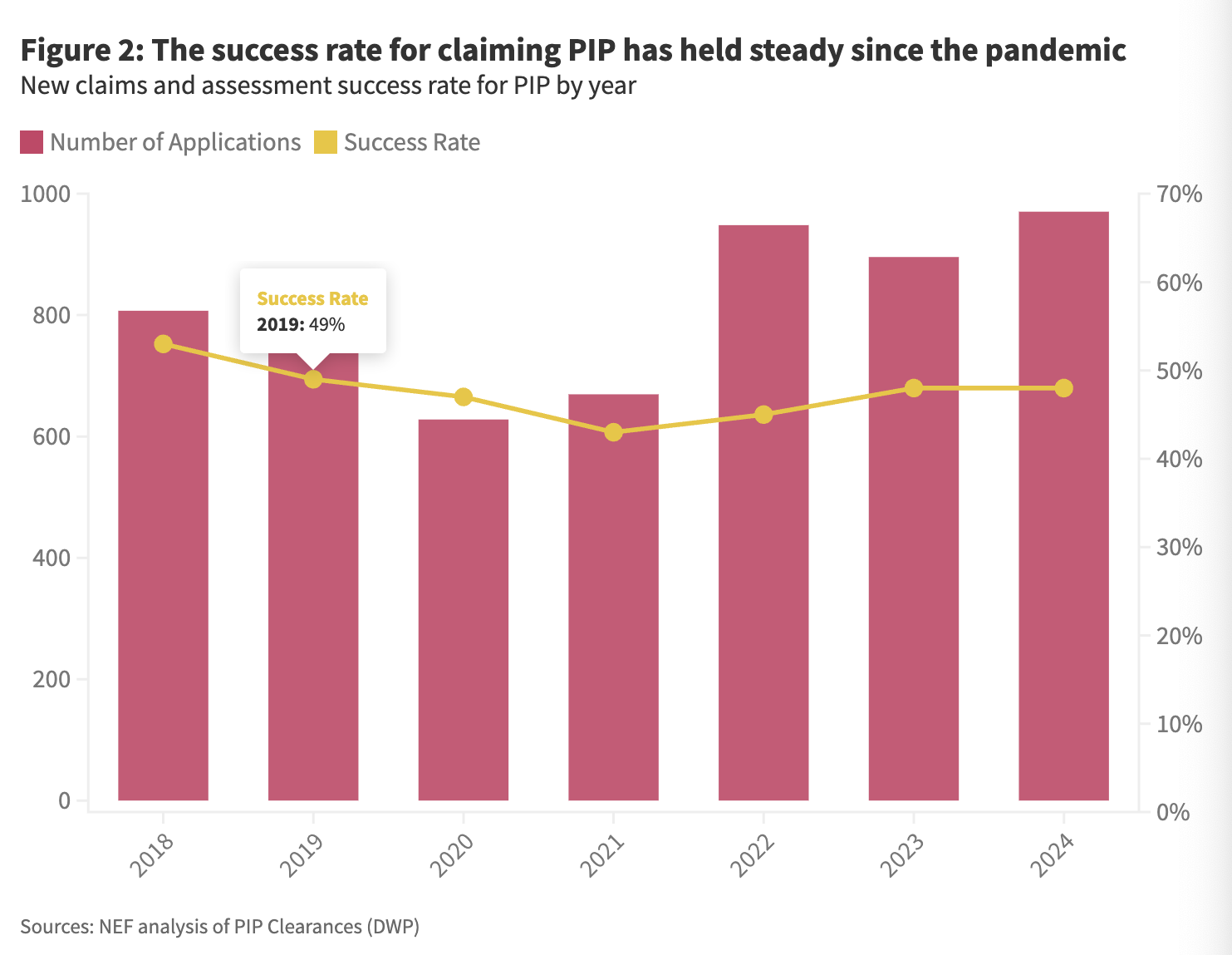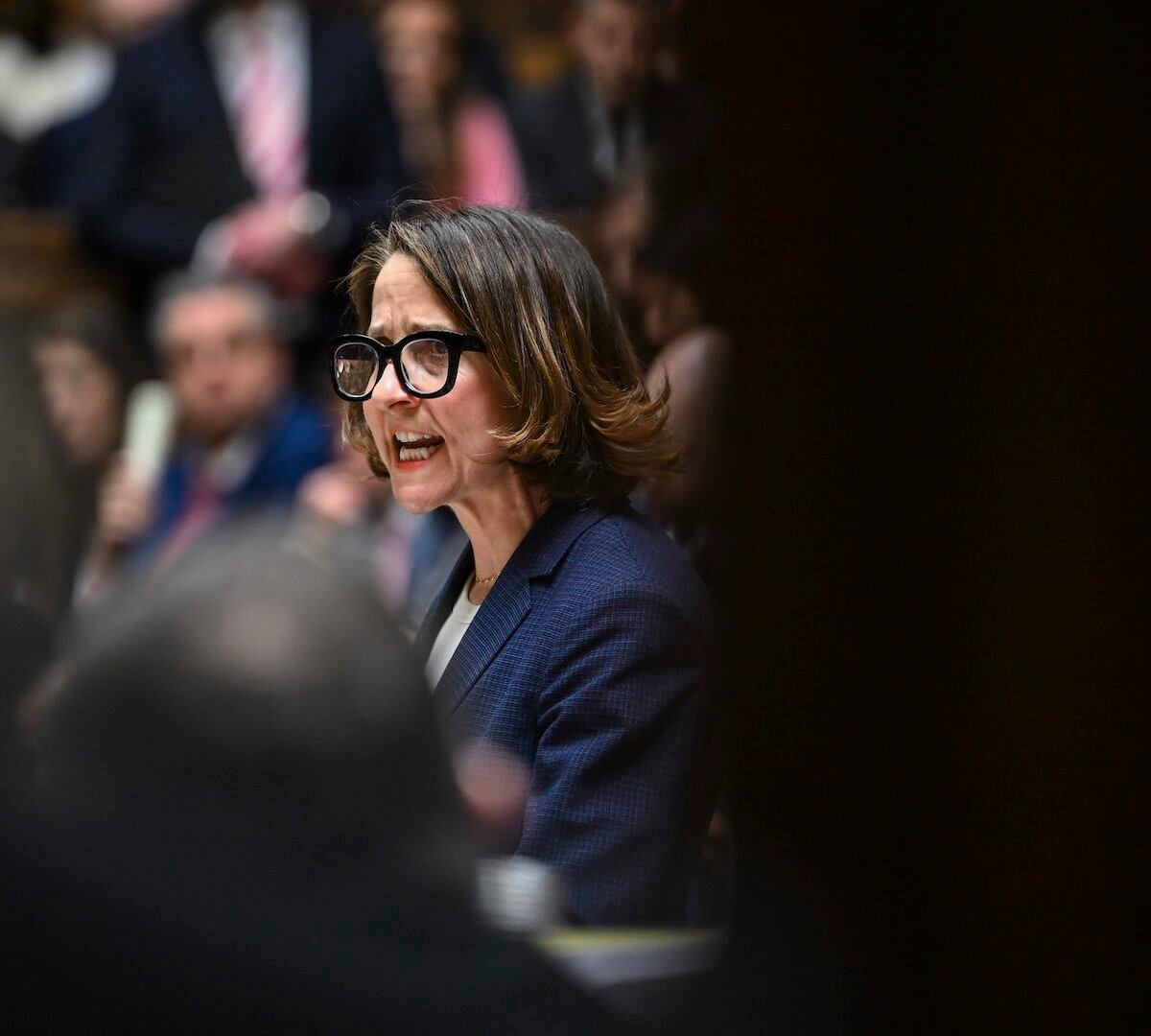As the Big Issue previously reported, the pandemic has had an impact on mental and physical health and has been compounded by a cost of living crisis which has also worsened people’s health. Around 36% more people were in touch with mental health services in 2024 than 2019.
Max Mosley, senior economist at the New Economics Foundation, said: “Our analysis suggests that PIP is going to exactly the sort of people it is intended to support, but that higher rates of disability and financial hardship are driving more people to claim.”
New Economics Foundation researchers have highlighted that there has been a fairly static success rate in PIP claims – fewer than half (48%) of people who have applied for PIP are awarded it, and it has remained so for a number of years. If it had become easier to claim PIP, the success rate would have increased.

There is a strong correlation between disability prevalence, hardship and PIP claims across regions in the UK. The rate of deprivation in a region and the number of disabled people living there allowed researchers to predict the rate of PIP payments with 94% accuracy.
As a result, the New Economics Foundation concludes that the rise in disability benefit claims is symptomatic of rising disability rates and worsening hardship.
By the government’s own estimates, 250,000 more people will be plunged into poverty as a result of the disability benefit reforms – and disabled people are already disproportionately impacted by hardship. Around 12% of disabled people have said they were unable to pay their bills in the last 12 months, compared with 5% of non-disabled people.
The New Economics Foundation also warned that the cost savings from the disability benefit cuts are likely “not as high as assumed”, as people often look for alternative forms of financial support from the government and councils when their benefits are cut.
Mosley added: “The government’s plans to restrict access to PIP will lead to hundreds of thousands of disabled people missing out on support they very much need. This could well prove to be as politically toxic for the government as cutting the winter fuel payment.”
The Department for Work and Pensions has been contacted for comment.
Do you have a story to tell or opinions to share about this? Get in touch and tell us more. Big Issue exists to give homeless and marginalised people the opportunity to earn an income. To support our work buy a copy of the magazine or get the app from the App Store or Google Play.





